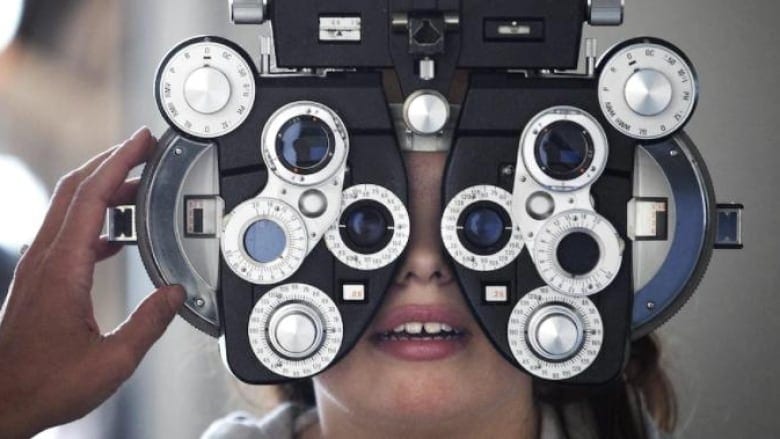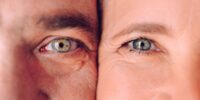Why Regular Eye Exams Are Essential for Overall Health

Regular eye exams play a crucial role in maintaining overall health.
This article explores the relationship between eye health and overall well-being, emphasizing the importance of preventative measures to avoid vision loss.
By detecting and managing eye conditions early on, individuals can not only preserve their sight but also gain insights into their overall health.
The significance of early detection and treatment is highlighted, along with lifestyle tips to maintain healthy eyesight.
Ultimately, this article aims to underscore the necessity of regular eye exams for optimal overall health.
Key Takeaways
- Regular eye exams are crucial for maintaining overall well-being and preventing blindness.
- Comprehensive evaluations of ocular health are essential for preventing vision loss.
- Regular eye exams help identify and address potential vision problems before they worsen.
- Regular eye exams serve as a window into a person’s overall health.
The Link Between Eye Health and Overall Well-being
The relationship between eye health and overall well-being is a significant area of research that highlights the importance of regular eye exams. Eye health plays a crucial role in maintaining overall well-being, as it is closely linked to preventing blindness and age-related eye conditions.
Regular eye exams are essential for early detection and intervention of eye diseases, which can significantly impact a person’s quality of life. Aging is a natural process that affects various aspects of health, including the eyes. With age, the risk of developing eye conditions such as cataracts, glaucoma, and age-related macular degeneration increases.
Regular eye exams allow for the timely detection and management of these conditions, preventing further vision loss and improving overall well-being. Therefore, prioritizing eye health through regular exams is vital for maintaining one’s overall health and preventing blindness.
Preventing Vision Loss Through Regular Eye Exams
Preventing vision loss can be achieved by regularly undergoing comprehensive evaluations of ocular health. Maintaining healthy eyesight is crucial for overall well-being. Regular eye exams can help identify and address potential vision problems before they become more severe. These exams typically include a variety of tests and assessments to assess visual acuity, eye coordination, and ocular health. By detecting and treating conditions such as glaucoma, macular degeneration, and cataracts early on, vision loss can be prevented or minimized. The table below illustrates the importance of regular eye exams in maintaining healthy eyesight.
| Eye Condition | Symptoms | Prevention |
|---|---|---|
| Glaucoma | Vision loss | Regular eye exams |
| Macular degeneration | Blurred vision | Early detection and treatment |
| Cataracts | Cloudy vision | Comprehensive eye evaluations |
Regular eye exams play a vital role in preventing vision loss and promoting overall ocular health. By identifying potential issues early on, individuals can take proactive measures to maintain healthy eyesight.
Detecting and Managing Eye Conditions
Detecting and managing eye conditions involves conducting thorough evaluations of ocular health to identify and address potential vision problems before they worsen. Regular eye exams play a critical role in managing eye conditions and preventing vision loss.
By assessing visual acuity, eye structure, and ocular health, eye care professionals can detect and diagnose various eye conditions, such as cataracts, glaucoma, macular degeneration, and diabetic retinopathy. Timely management and treatment of these conditions can help prevent further deterioration of vision and reduce the risk of permanent vision loss.
Additionally, regular eye exams allow for the early detection of systemic health conditions, such as diabetes, hypertension, and certain autoimmune diseases, which may manifest with ocular symptoms.
Overall, effective management of eye conditions and prevention of vision loss rely on comprehensive evaluations and regular monitoring of ocular health.
Eye Exams as a Window Into Your Overall Health
Detecting underlying health conditions through comprehensive eye health assessment is crucial for early intervention, which can ultimately save lives.
Regular eye exams not only help in identifying eye-related issues but also serve as a window into a person’s overall health.
Detecting Underlying Health Conditions
Identifying potential underlying health conditions through regular eye exams allows for early intervention and treatment. Eye exams are not just about checking for vision problems, but also serve as a window into the overall health of an individual. Many systemic diseases can manifest in the eyes, making them important indicators of hidden illnesses. Regular check-ups can help in the early detection of conditions such as diabetes, high blood pressure, and even certain types of cancer. By monitoring changes in the eyes, healthcare professionals can identify potential health issues and prompt further medical evaluation. This proactive approach enables timely treatment, leading to better health outcomes. Therefore, regular eye exams should not be overlooked as they play a vital role in detecting hidden illnesses and emphasize the importance of regular check-ups.
| Potential Health Conditions Detected Through Eye Exams | |||
|---|---|---|---|
| Diabetes | High Blood Pressure | Thyroid Problems | Cancer |
| Multiple Sclerosis | Lupus | HIV/AIDS | Rheumatoid Arthritis |
Early Intervention Saves Lives
Early intervention plays a crucial role in improving health outcomes and potentially saving lives. Timely diagnosis and treatment are essential in preventing the progression of diseases and minimizing complications.
When it comes to eye health, early intervention is particularly important. Regular eye exams can lead to early diagnosis of various eye conditions, such as glaucoma, cataracts, and macular degeneration. These exams also provide an opportunity to detect underlying health conditions, including diabetes and hypertension, which may initially manifest through ocular symptoms.
Through early diagnosis, individuals can receive timely treatment, which can significantly improve their overall health outcomes. For instance, early detection of diabetic retinopathy, a common complication of diabetes, allows for prompt intervention and management, reducing the risk of vision loss and other complications.
Therefore, regular eye exams and subsequent early intervention are essential in preserving vision and promoting overall health.
Comprehensive Eye Health Assessment
A comprehensive assessment of the eye’s health provides valuable information for diagnosing and managing various ocular conditions. Regular eye exams are essential as they allow for early intervention, which can potentially save lives. By detecting eye diseases and conditions in their early stages, healthcare professionals can implement appropriate treatments and preventive measures to minimize vision loss and improve overall ocular health.
A comprehensive eye health assessment typically includes a range of tests and evaluations to assess visual acuity, eye coordination, intraocular pressure, and overall eye health. This assessment may involve the use of specialized equipment such as a slit lamp, tonometer, and ophthalmoscope. Through these examinations, eye care professionals can identify abnormalities, diagnose ocular diseases, and monitor the progression of existing conditions.
The following table provides an overview of some common tests performed during a comprehensive eye health assessment:
| Test | Purpose | Equipment Used |
|---|---|---|
| Visual Acuity | Assess clarity of vision | Snellen chart |
| Intraocular Pressure | Measure pressure inside the eye | Tonometer |
| Slit Lamp Exam | Evaluate the external and internal structures of the eye | Slit lamp |
| Ophthalmoscopy | Examine the retina and optic nerve | Ophthalmoscope |
Regular comprehensive eye health assessments are crucial for maintaining good vision and identifying potential health concerns. By being proactive and seeking regular eye exams, individuals can ensure early intervention and potentially save lives.
The Importance of Early Detection and Treatment
To ensure optimal health outcomes, timely detection and treatment play a crucial role in the management of eye conditions. Early intervention is of utmost importance when it comes to eye health, as many conditions can progress rapidly and cause irreversible damage if left untreated.
Regular check-ups with an eye care professional offer several benefits in terms of early detection and intervention:
- Early intervention can help prevent or slow down the progression of eye diseases, such as glaucoma or age-related macular degeneration.
- Regular eye exams can detect underlying health conditions, such as diabetes or hypertension, which may initially present with ocular symptoms.
- Timely treatment can improve visual outcomes and quality of life for individuals with eye conditions, allowing them to maintain independence and function in daily activities.
Lifestyle Tips for Maintaining Healthy Eyesight
This discussion will focus on lifestyle tips for maintaining healthy eyesight, specifically addressing the impact of diet on eye health, the effects of screen time on the eyes, and tips for protecting the eyes.
Diet plays a crucial role in supporting optimal eye health, and certain nutrients, such as vitamins C and E, omega-3 fatty acids, and lutein, have been shown to benefit the eyes.
Excessive screen time can lead to digital eye strain, characterized by symptoms like dryness, fatigue, and blurred vision, making it important to understand its effects and implement strategies to minimize them.
Additionally, taking proactive measures, such as wearing sunglasses and using protective eyewear in hazardous environments, can help safeguard the eyes from potential harm.
Diet and Eye Health
The relationship between diet and eye health has been extensively studied in academic research. Several key findings have emerged, highlighting the importance of a healthy diet in maintaining optimal eye health.
Benefits of omega-3 fatty acids:
- Omega-3 fatty acids, commonly found in fatty fish like salmon and mackerel, have been shown to play a crucial role in preventing macular degeneration, a leading cause of vision loss in older adults.
- These fatty acids help maintain the structural integrity of the retina and reduce inflammation, both of which are vital for preserving vision.
- Consuming foods rich in omega-3 fatty acids can also lower the risk of developing dry eye syndrome, a common condition characterized by insufficient tear production.
Incorporating a balanced diet that includes omega-3 fatty acids can significantly contribute to maintaining good eye health and preventing vision problems.
Screen Time Effects
Screen time has been studied extensively in relation to its effects on eye health. Researchers have found a potential link between excessive screen time and an increased risk of developing digital eye strain. Digital eye strain refers to the discomfort or visual disturbances experienced after prolonged use of digital devices such as computers, smartphones, and tablets.
One factor that has been implicated in the development of digital eye strain is exposure to blue light emitted by these devices. Blue light has a shorter wavelength and higher energy compared to other colors in the visible light spectrum. It has been suggested that prolonged exposure to blue light can cause oxidative stress and damage to the retina, leading to symptoms of digital eye strain.
However, further research is needed to fully understand the relationship between blue light and digital eye strain, as well as to develop effective preventive measures and interventions.
Eye Protection Tips
Regular eye exams are crucial for maintaining overall health, especially in today’s digital age where screen time has become a significant part of our daily lives. The excessive use of digital devices can lead to various eye problems, including eye strain and exposure to harmful blue light. To protect our eyes, here are some important tips to consider:
- Reduce screen time: Limiting the amount of time spent on digital devices can help prevent eye strain and minimize exposure to blue light.
- Use the 20-20-20 rule: Every 20 minutes, take a 20-second break and focus on an object 20 feet away to alleviate eye strain.
- Wear blue light glasses: These glasses can filter out blue light and reduce its impact on the eyes, providing an extra layer of protection.
Frequently Asked Questions
How Often Should I Get a Regular Eye Exam?
The frequency of regular eye exams depends on various factors, including age, overall health, and the presence of any eye conditions. It is important to follow the recommended guidelines for early detection and to adequately prepare for these exams.
What Are Some Common Eye Conditions That Can Be Detected During an Eye Exam?
Common eye conditions detected in eye exams include cataracts, glaucoma, macular degeneration, and diabetic retinopathy. Early detection is crucial in managing these conditions and preventing vision loss. Regular eye exams play a vital role in identifying and treating these conditions.
Are There Any Specific Symptoms or Signs That Indicate the Need for an Eye Exam?
Signs of needing an eye exam include blurry vision, difficulty seeing at night, eye pain, and frequent headaches. Regular eye exams are important for overall health because they can detect early signs of eye diseases and other underlying health conditions.
Can Eye Exams Detect Health Conditions Other Than Eye-Related Issues?
Eye exams are important for early detection of various health conditions beyond eye-related issues. They can identify systemic diseases such as diabetes, hypertension, and certain types of cancer, highlighting the crucial role of eye exams in overall health assessment.
Are There Any Age Groups That Are More Susceptible to Vision Loss or Eye Conditions?
Different age groups exhibit varying susceptibilities to vision loss and eye conditions. Common eye conditions detected during exams include cataracts, age-related macular degeneration, and glaucoma. Early detection and intervention are crucial for effective management and prevention of vision loss.









